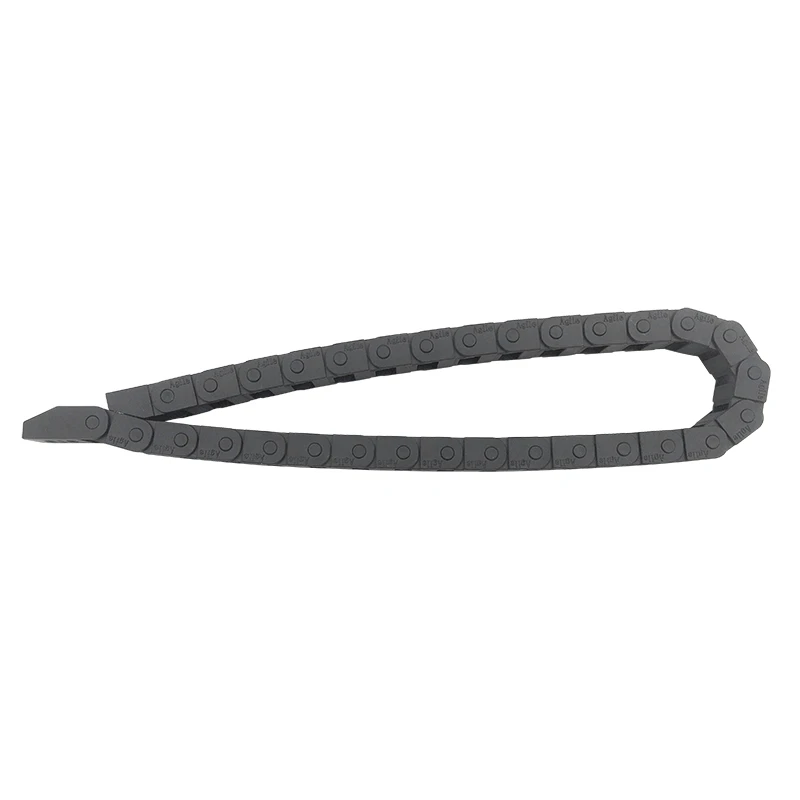Durable Plastic Flexible Cable Carrier Chain for Efficient Cable Management and Protection
The Versatility of Plastic Flexible Cable Carrier Chains
In today's technologically driven world, the demand for efficient and reliable machinery has never been higher. Within this context, plastic flexible cable carrier chains have emerged as indispensable components in various industrial applications. Designed to protect and guide flexible cables and hoses, these chains enhance productivity and ensure the longevity of equipment. This article will delve into the features, benefits, and applications of plastic flexible cable carrier chains.
What are Plastic Flexible Cable Carrier Chains?
Plastic flexible cable carrier chains, also known as cable tracks or drag chains, are elongated structures designed to house and organize flexible cables, hoses, and tubing. They function similarly to conveyor systems, providing a reliable pathway for cables to move freely without entangling or becoming damaged. Manufactured from durable plastics such as nylon or polyamide, these chains are lightweight yet robust, making them ideal for various industrial environments.
Key Features
One of the primary features of plastic flexible cable carrier chains is their flexibility. They can bend and twist to accommodate dynamic movement, making them suitable for applications where motion is constant. Additionally, their modular design allows for easy customization and extension, accommodating different lengths and widths as needed.
Another notable feature is their resistance to wear and tear. Plastic materials used in these chains are often engineered for high strength and impact resistance, ensuring they can withstand harsh conditions, such as extreme temperatures, chemicals, and abrasives. Moreover, they are generally quieter than metal counterparts, which is a significant advantage in noise-sensitive environments.
Benefits of Using Plastic Flexible Cable Carrier Chains
1. Enhanced Protection The primary purpose of cable carrier chains is to protect cables from wear, abrasion, and environmental hazards. By enclosing cables within a protective chain, the risk of damage is significantly reduced, leading to lower maintenance costs and prolonged equipment life.
plastic flexible cable carrier chain

2. Improved Organization These chains keep cables and hoses neatly organized, preventing tangling and improving workspace efficiency. In industries where space is often limited, the compact design of cable carriers allows for a tidy and efficient setup.
3. Increased Mobility Plastic flexible cable carriers are designed for ease of movement. The smooth inner surfaces help reduce friction, allowing cables to glide smoothly during operation. This feature significantly lowers the chances of wear and ensures consistent performance.
4. Cost-Effectiveness While the initial investment in plastic cable carrier chains may seem significant, the long-term savings are undeniable. By reducing cable wear and the frequency of replacements, businesses can save money and enhance overall productivity.
Applications Across Industries
The versatility of plastic flexible cable carrier chains is evident in their wide range of applications. They can be found in various sectors, including
- Manufacturing Used in CNC machines, robotic arms, and assembly lines to manage power and data cables. - Automotive Employed in production lines and automated vehicles to guide wiring and hydraulic hoses. - Aerospace Essential in aircraft manufacturing processes where reliable and lightweight cable management is critical. - Construction Utilized in cranes and other heavy machinery, providing secure routing for hydraulic lines and electrical cables.
Conclusion
Plastic flexible cable carrier chains represent a critical innovation in the realm of industrial automation and cable management. Their flexibility, durability, and protective qualities make them ideal for a myriad of applications across diverse sectors. As industries continue to evolve and embrace new technologies, the role of these cable carrier chains will undoubtedly become increasingly significant, ensuring efficiency and reliability in an ever-changing landscape. Investing in quality cable carrier systems will not only enhance performance but also pave the way for future advancements in industrial machinery.








